Photo credit: ATEC*Biodigesters
A solar-powered food dehydrator, an affordable voice prosthesis and a waste-to-fuel biodigester were among the social and environmental innovations awarded at the 2018 DBS-NUS Social Venture Challenge (SVC) Asia on 18 October.
A total of S$135,000 in cash prizes was handed out to the five winning teams at the fifth iteration of the annual competition which recognizes social ventures that demonstrate positive, scalable and sustainable social and environmental impact within the region.
The social venture challenge
This year, a record 870 entries were submitted from 42 countries in Asia for the contest, which is jointly organized by NUS Enterprise, the entrepreneurial arm of the National University of Singapore, and the DBS Foundation, a corporate charity.
“It is inspiring to see social entrepreneurs addressing some of Asia’s most critical social issues, including pollution, poverty, as well as access to quality education, healthcare and sanitation. Over the past five years, some 4,000 participants have been part of our SVC Asia learning journey, with a total of S$780,000 being given as prizes to 27 teams. These teams have gone on to make social impact amongst their communities, creating a better world for us to live in”, said Professor Wong Poh Kam, Senior Director, NUS Enterprise, who also chaired the final judging panel for SVC Asia 2018.
Solar powered food conservation for farmers in India
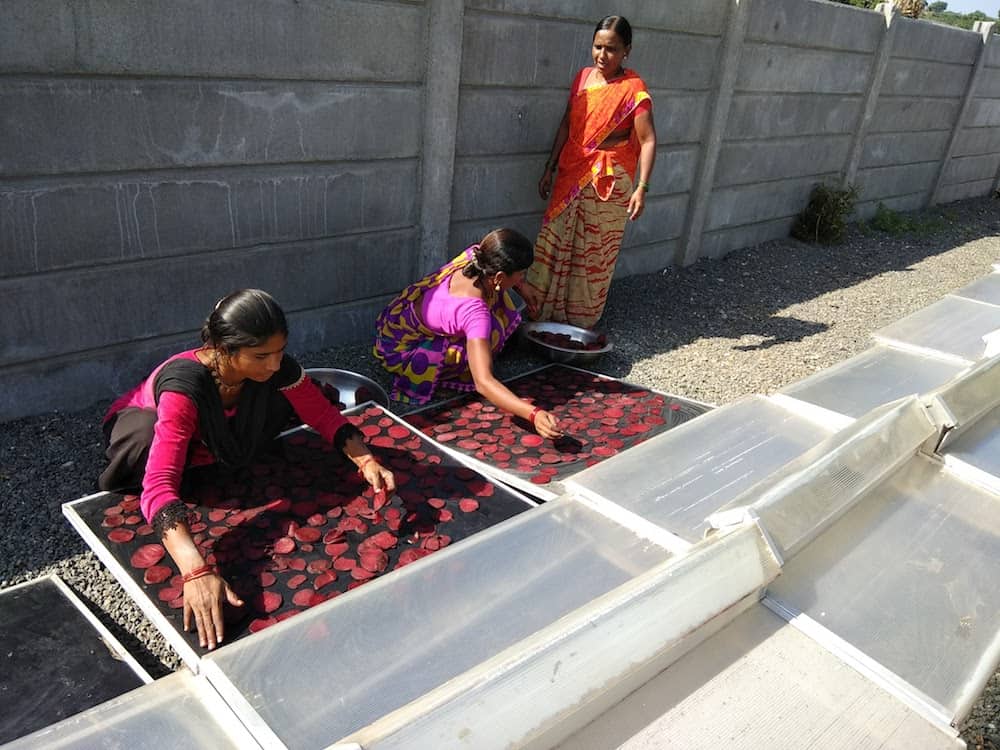
Clinching the top spot was Science for Society (S4S) Technologies, the social venture behind a solar-powered, electricity-free food dehydrator that allows farmers to preserve their produce for up to a year, without using any chemicals.
This process is more hygienic and retains 45% more nutrition, flavor and color compared to open-sun drying. It is also two to three times cheaper than other solar-powered dryers, and most farmers – many of them marginalized women – are able to pay for the unit within 100 days.
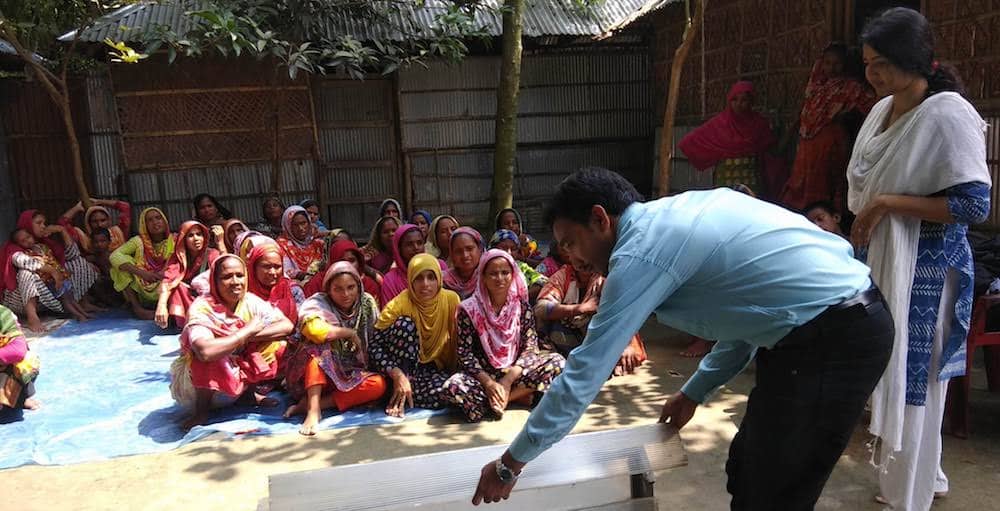
“We have sold about 2,000 units of our Solar Conduction Dryer, across 23 states in India and 8 countries around the world. Typically, each unit supports 5 neighboring families, so we have so far made an impact on over 10,000 households. In addition to helping farmers extend the shelf-life of their produce, S4S Technologies buys back their dehydrated fruits and vegetables for our own product line of vegetable chips”, shared Nidhi Pant, Co-Founder of S4S Technologies.“Moving forward, we plan to set up another 2,000 units in another 100 villages over the next 12 months, and our win at SVC Asia will help us to extend this impact.”
Giving cancer survivors their voice back
Runner-up Innaumation Medical Devices developed an affordable voice prosthesis device for laryngectomy patients, who have had their voice box surgically removed in most cases due to cancer. Prosthetic voice devices typically cost US$500 to US$1,000 each, which is out of reach for many patients in India, while Innaumation plans to sell their product at a mere US$1 per device.
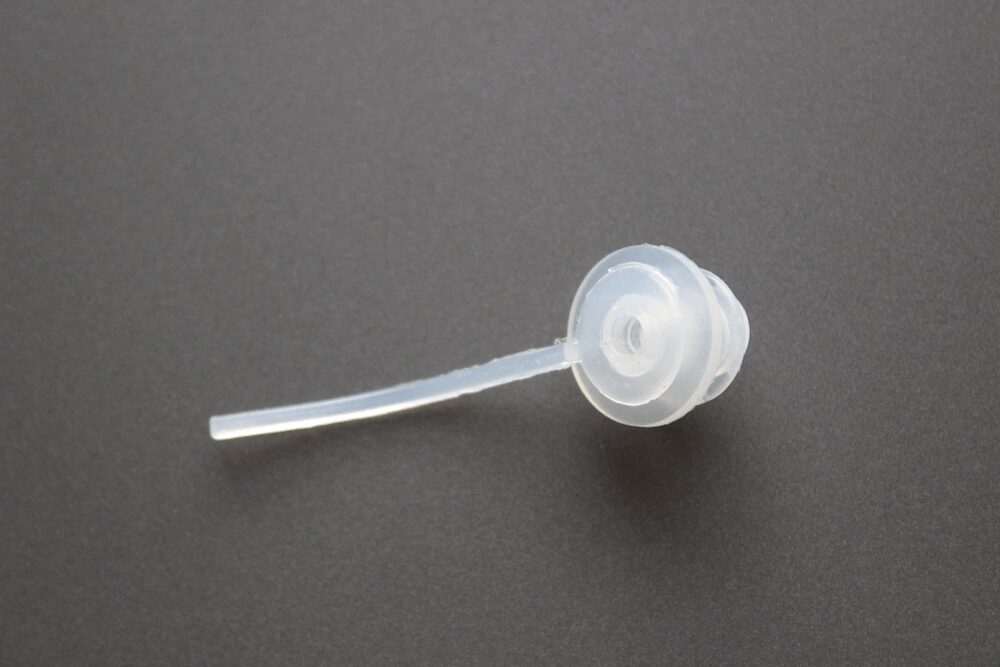
Dr Vishal Rao, a surgical oncologist teamed up with industrial engineer Shashank Mahesh, to co-develop the Aum Voice Prosthesis, a small platinum-cured silicon device that can be inserted into the throat of laryngectomy patients to restore their voice.
Established in 2016, Innaumation Medical Devices has set up a factory in Bangalore with cleanroom specifications, and is currently gearing up for commercial production.
“Our aim for Innaumation Medical Devices is to make science accessible for everyone.The Aum Voice Prosthesis is just the start. The SVC Asia prize money will be used inmanufacturing and distributing this device, firstly in India and subsequently to global markets”,commented Rao. “Innaumation Medical Devices is also working on a number of other innovations,including a tracheostomy tube that allows speech, mixed/augmented-reality glasses forsurgical magnification and video recording, and a device that translates EEG brain wavesinto speech.”
Converting agricultural and household waste into biofuels for safer livelihoods
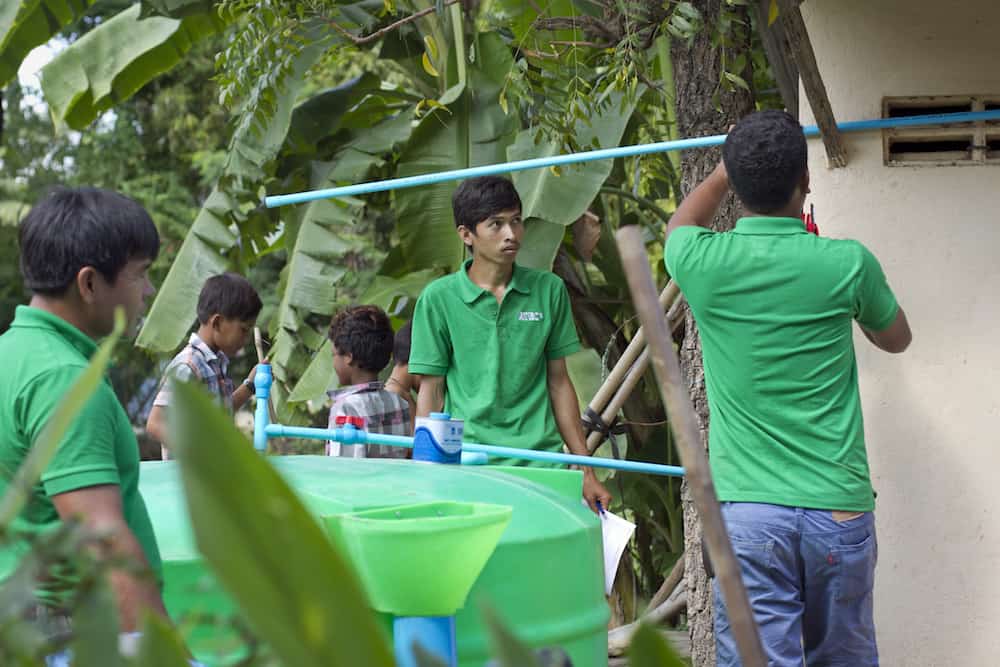
ATEC* Biodigesters, the third social enterprise to round up the top three winners, produces and distributes an innovative biodigester that converts animal manure and kitchen waste into biogas for cooking and organic fertilizer for farming. Each biodigester system can produce up to 1,500 liters of biogas per day and 20 tons of organic fertilizer per year.
The solution was developed by two Australian NGOs, which subsequently spun-off ATEC* in 2015 as a social enterprise to commercialize the product.
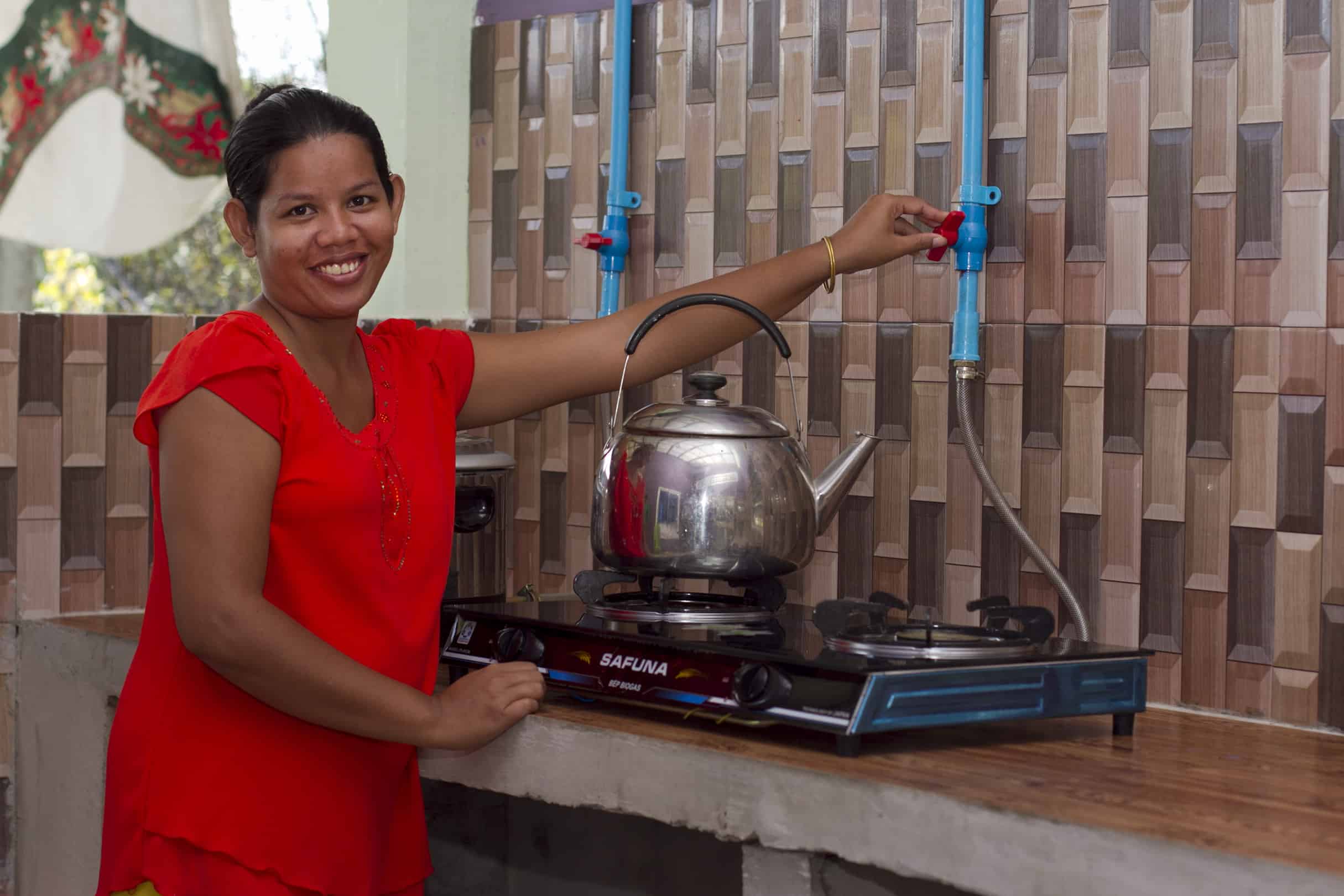
“In Cambodia, cooking with wood actually kills more people than traffic accidents every year, and in particular affects the women and children, who are usually tasked with cooking duties”, shared Socheat Cheng, General Manager of ATEC*.
ATEC* addresses health problems associated with wood fires, which pose the same health hazards as inhaling cigarette smoke. Other benefits include encouraging better hygiene and sanitation within the household, as well as reducing time spent collecting firewood. The biodigesters are suitable for flood- and earthquake-prone areas, and can easily be transported to and assembled in any environment.
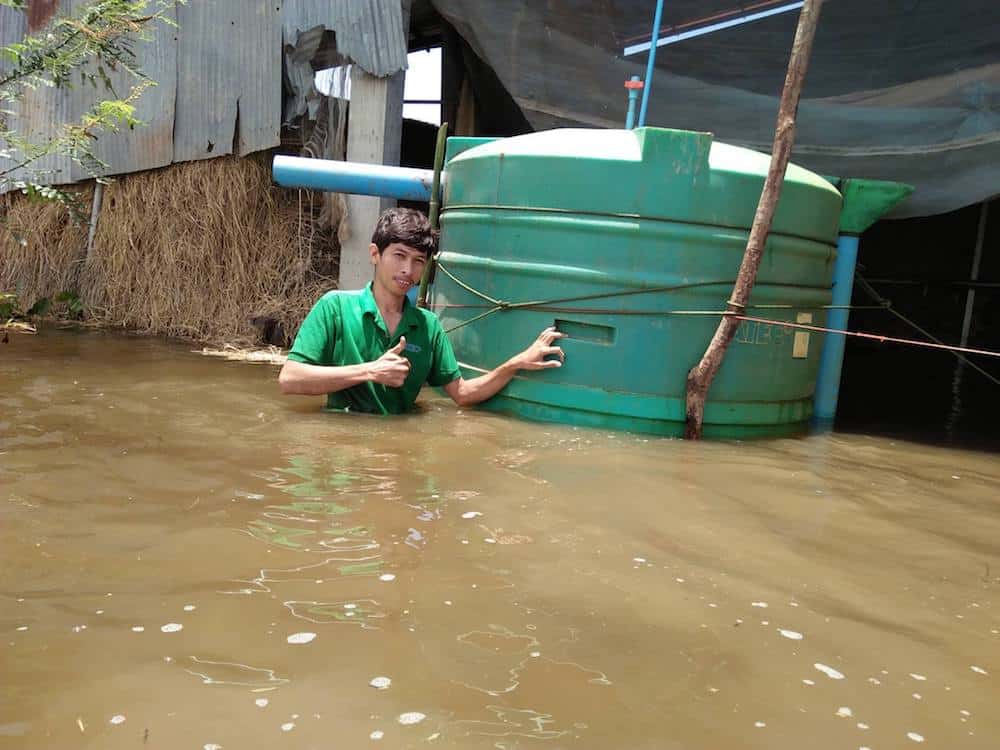
“Currently we have deployed some 800 biodigester systems, providing over 3,500 people with access to clean cooking and improved farming. Moving forward, we aim toreach 2,500 systems per year, and also branch into Bangladesh and Myanmar. The prize from SVC Asia comes at an opportune time, as we will use the money to develop our nextprototype, which will have remote monitoring features and also installment paymentoptions.”
Two additional awards were given out by SVC Asia’s corporate sponsors, the HEAD Foundation and Experian to an AI-driven, cloud-based healthcare monitoring solution targeted at improving healthcare services and access in rural India, and a gamified social learning platform for more personalized and affordable education in Hong Kong.
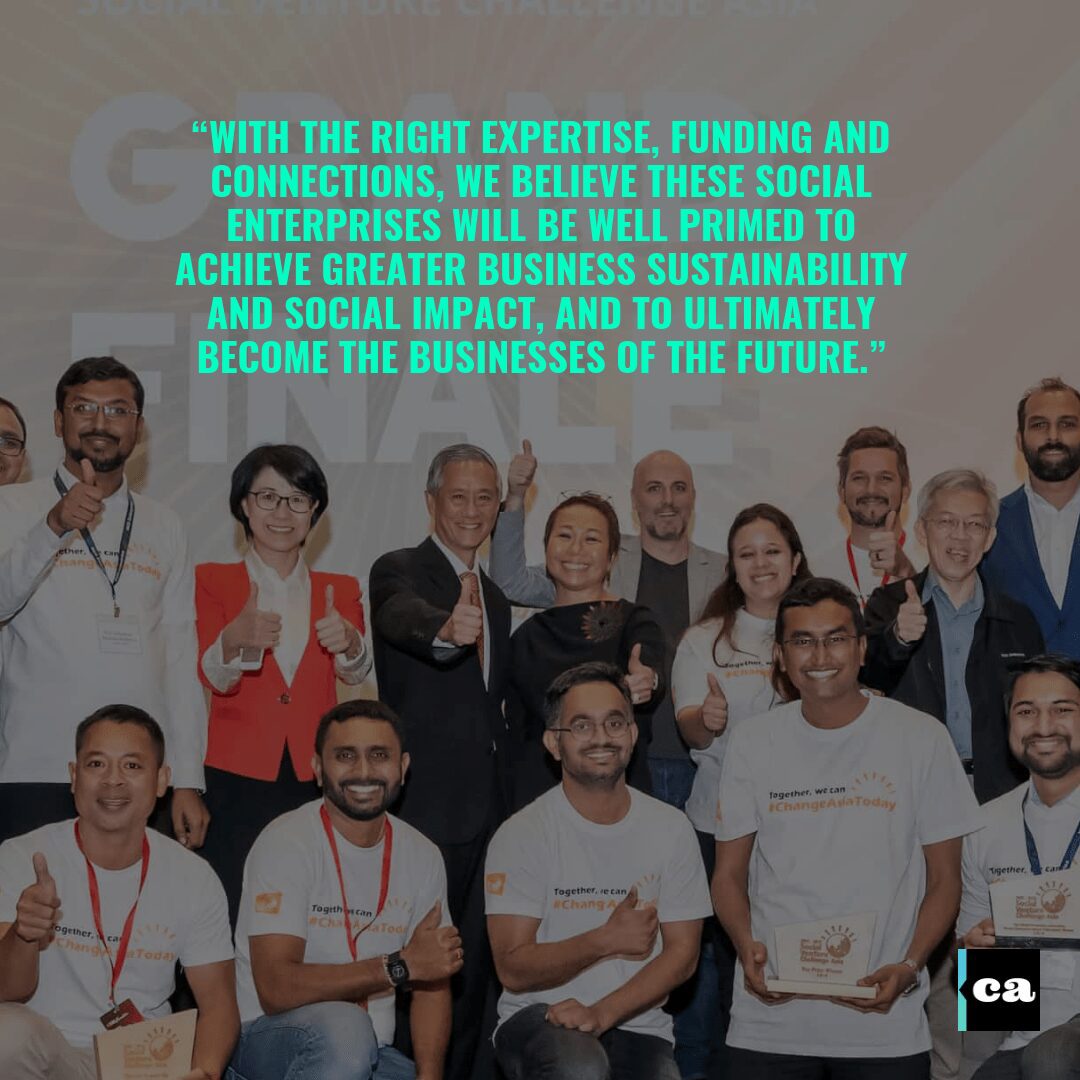
“As one of Asia’s leading foundations dedicated to championing social entrepreneurship, we at DBS Foundation have had the opportunity to understand the inner workings of social enterprises across the region by working closely with them and providing the resources they need to thrive”, concluded Karen Ngui, Board Member of DBS Foundation and DBS’ Head of Group Strategic Marketing & Communications.“With the right expertise, funding and connections, we believe these social enterprises will be well primed to achieve greater business sustainability and social impact, and to ultimately become the businesses of the future.”
Related Post:








